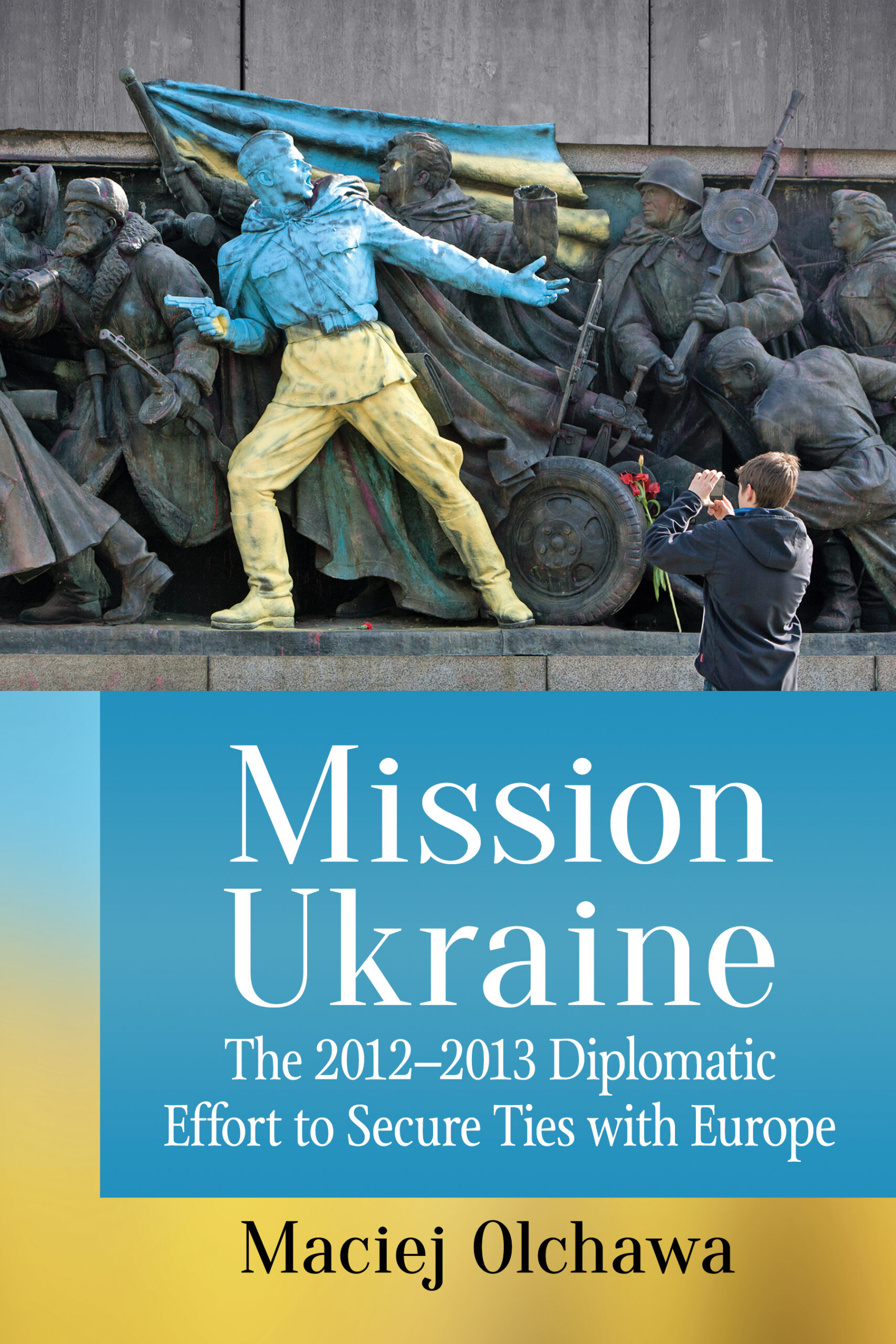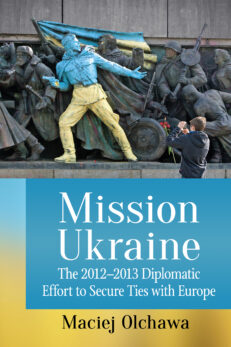Mission Ukraine
The 2012–2013 Diplomatic Effort to Secure Ties with Europe
$29.95
In stock
About the Book
On a February night in Kyiv in 2013, former president of Poland Aleksander Kwaśniewski turned to his friend Pat Cox, the former president of the European Parliament, and joked, “They’ve got a lot of empty space on this square—an ideal location to put up statues of you and me.” Over a year and a half, the two visited Ukraine 27 times, negotiating the release of former Prime Minister Yulia Tymoshenko, which would allow Ukraine to sign the Association Agreement with the European Union.
The Cox-Kwaśniewski mission was part of the EU’s final effort to save the Agreement and give millions of Ukrainians the hope of a European future. All the while, Russia was using a trade embargo to draw Ukraine into the Eurasian Union. After an intricate game of lies, bluffing and blackmail, Viktor Yanukovych backed out of closer relations with Europe. Feeling betrayed, Ukrainians took to the streets and a wave of civil unrest was born.
About the Author(s)
Bibliographic Details
Maciej Olchawa
Format: softcover (6 x 9)
Pages: 184
Bibliographic Info: 8 photos, notes, bibliography, index
Copyright Date: 2017
pISBN: 978-1-4766-6938-0
eISBN: 978-1-4766-2897-4
Imprint: McFarland
Table of Contents
Table of Contents
Preface 1
Introduction: The Most Influential Lobbyist of Ukraine in the World 5
I. Ukraine in Aleksander Kwaśniewski’s Geopolitical Strategy 15
II. The European Union’s Special Envoy to Ukraine 35
III. “Russia Won’t Stop”: The Russian Factor in the Disintegration of Ukraine 113
IV. The West’s Strategy 125
Epilogue: In the Center of the Whirlwind 137
Chapter Notes 145
Bibliography 167
Index 169
Book Reviews & Awards
“An insightful and meticulous analysis of two decades of Aleksander Kwasniewski’s role in the European integration of Ukraine. Mission Ukraine lures the reader backstage and offers a fast-paced narrative of a fascinating game of diplomatic and political intrigue.”—Javier Solana, Secretary General of NATO (1995–1999), EU’s High Representative for Common Foreign and Security Policy (1999–2009); “Maciej Olchawa’s excellent book expertly analyzes Putin Russia’s role in growing East-West tensions and serves as an indispensable guide to the key geopolitical challenges facing Ukraine and its Western allies at a time of global uncertainty.”—Alexander J. Motyl, Rutgers University; “The histories of Poland and Ukraine have been closely intertwined for centuries. In 1917, both tried to shake off Russia’s oppressive rule. Poland succeeded, Ukraine did not and remained under Moscow’s rule until 1991. While Poland moved firmly to join the EU, Ukraine stumbled until the Revolution 2014 finally said no to Moscow and yes to Europe. This well written and cogently argued book is an anatomy of the Ukrainian revolution and a man who shared the Ukrainian aspirations and helped guide it towards Europe, Poland’s former President Aleksander Kwasniewski.”—Michael Khodarkovsky, Loyola University Chicago; “From the perspective of time, the Ukrainian Orange Revolution of 2004 and, even more importantly, Ukraine’s Revolution of Dignity of 2013–14, which was followed by Russia’s military aggression against Ukraine, appear to be the most dramatic and most significant sociopolitical events in recent European history. The outcome of the revoluntionary changes in Ukraine will have a powerful impact on the future fate of Europe and the overall geopolitical balance in our 21st-century world. However, in spite of its significance, Ukraine itself and its sociopolitical transformations remain understudied in the West and all too often underappreciated or misunderstood. Maciej Olchawa’s thoughtful book is a welcome addition to the scholarship on contemporary Ukraine within the context of European politics. By analyzing the process of Ukraine’s European integration (which includes the country’s two recent revolutions) through the prism of the ideas and work of Aleksander Kwasnieski (one of the foremost experts on Ukraine among European statesmen) Olchawa contributes to our better understanding of the complex situation in Ukraine, heavily affected by Russia’s aggressive policies, as well as the intricacies of EU diplomacy.”—Marko Robert Stech, Canadian Institute of Ukrainian Studies.





